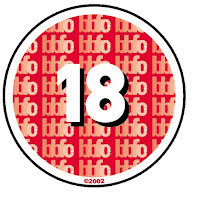Censorship is when a film is cut to prevent access to material.
Certification is needed due to:
- legal obligations - to prevent material breaking the law
- protective obligations - some audiences may need protecting from items that may cause harm
- societal obligations - to consider broader public opinion in mind with regard to language.
The BBFC (British Board if Film Classification) was created in 1912 and is in charge of classifying films. Although local councils accept the BBFC's decision, councils still have the power to change film certificates if they are being shown in cinemas. For example, in 1993, Mrs Doubtfire was dubbed by the BBFC as a 12, but some councils lowered it to PG to increase audience numbers.
In 1984, a new law - The Video Recordings Act - passed, which put the BBFC in charge of classifying all videos for home use. This involves noting any dangerous or criminal activities on a video or DVD. The Video Recordings Act also states that children and animals must not be harmed or no showing.
A film can be certified under any of the following:
- Universal - suitable for all
- Parental Guidance - general viewing, but some scenes may be unsuitable for young children
- Suitable for 12 years and over
- Suitable only for 15 and over
"No-one younger than 15 may see a '15' film in a cinema. No-one younger than 15 may rent or buy a '15' rated video work."
- Suitable only for adults
"No-one younger than 18 may see an '18' film in a cinema. No-one younger than 18 may rent or buy an '18' rated video."
ALI (2001) is rated as a '15'.
The Nightmare Before Christmas (1993) is rated as a PG.
Ghost Ship (2002) is rated as an '18'.
We will consider these conventions when rating our own film. We have to ensure that the content is suitable for our target audience of teenage males whilst also fitting into one of these ratings.





No comments:
Post a Comment